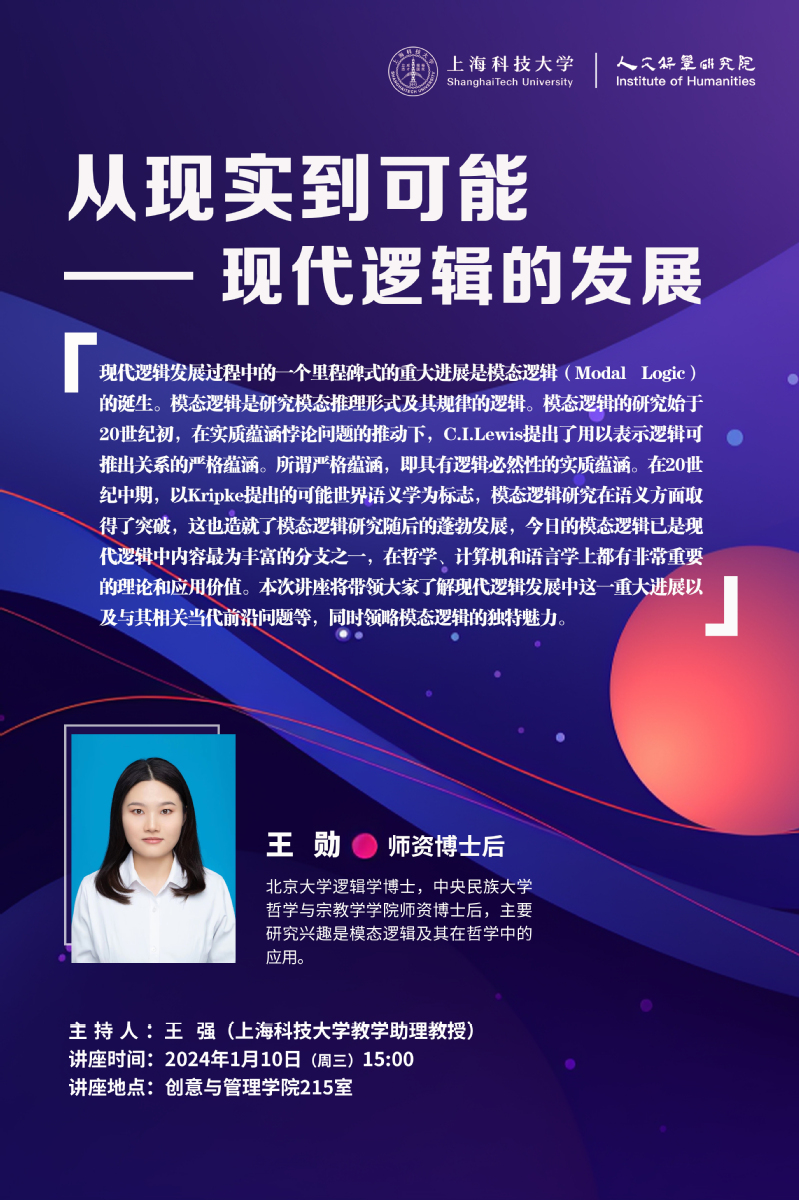
Dear all,
The lecture titled From Reality to Possibility: Development of Modern Logic will be hosted at 15:00 on Wednesday, January 10th, in Room Room 215, School of Entrepreneurship and Management. Welcome!
Speaker: Wang Xun,Ph.D. in Logic from Peking University, postdoctoral fellow at the School of Philosophy and Religious Studies, Minzu University of China. Her main research interests are modal logic and its application in philosophy.
Host: Wang Qiang, Teaching Asissant Professor of Logic, Institute of Humanities.
Summary: A milestone in the development of modern logic is the birth of Modal Logic. Modal Logic is the study of modal reasoning forms and their rules. The study of Modal Logic began in the early 20th century. Driven by the problem of material implication paradox, C.I. Lewis proposed strict implication to represent the logical implication relation. Strict implication refers to material implication with logical necessity. In the mid-20th century, with Kripke's proposed possible world semantics, Modal Logic made breakthroughs in semantics, leading to its vigorous development. Today, Modal Logic is one of the most richly developed branches in modern logic, with significant theoretical and applied value in philosophy, computer science, and linguistics. This lecture will guide everyone to understand this significant development in the modern logic and explore contemporary frontier issues related to it, while appreciating the unique charm of Modal Logic.
This event is one of the lectures in the Logic Frontiers Series of the general education course Introduction to Logic. It aims to lead students to appreciate the charm of cutting-edge research in logic. According to the plan, a lecture is arranged each semester for Introduction to Logic, inviting external experts in the field of logic. These experts, based on their research, introduce the work currently being done by logicians. The goal is to show students how the knowledge learned in the classroom can be applied in academic research, broaden their horizons, and deepen their understanding of logic.
